As you think of entering a medical assistant program, you have many of the same questions that other students do. Can you imagine living in a time before the internet, when you would have to ask around and get this information? These days, figuring out the difference between these career choices is much easier, and you will be far more able to determine which one you actually want to pursue.
So that’s the big question then, isn’t it? How do you choose what you want to do? More importantly, how do you make the choice when both choices seem to be inherently similar? Today we’re going to talk about phlebotomy and CNA, two similar positions with very different implications.
Understanding the Difference
When you are looking at any online career board, you’re probably going to find that the healthcare industry is always hiring for one job or another. Most of the jobs aren’t going to be entry level, but you probably already know that. The cool thing about these programs is that they allow you to get into the medical field without devoting a huge chunk of your life to training. Do you want to take that training? Most likely! But you also want to get into the industry right now, and these careers really are a great way to get yourself in.
Take phlebotomy, for example. It requires some postsecondary schooling, and the same would apply to becoming a CNA. Neither of these paths are time-intensive and they both have a wide range of benefits that you are going to absolutely love.
What are the Responsibilities?
The differences between the phlebotomist and the CNA really lie in the responsibilities. Phlebotomy technicians, for example, are almost exclusively used for blood draws while certified nursing assistants, or CNA’s, focus on patient care. They have a range of responsibilities toward patients which include;
- Bathing Patients
- Serving Meals
- Measuring Vital Signs
- Patient Transfers
- Recording Health Concerns
This is not a comprehensive list as there are many potential duties that a CNA might undertake. For a full list of these duties, it is strongly recommended that you speak with a CNA and find out what they deal with on a daily basis. As you may already know, the job can become incredibly stressful, and with that being the case, it will be important for you to do some research and determine whether or not it really is the path you want to take in the medical field. The job of a phlebotomist, however, is a bit less stressful.
Taking Your Education


Phlebotomy – Once you attend an accredited school and complete the phlebotomy training program, you will need to sit for an exam. In addition to that, most states require that you get ‘100 sticks’ in before you can sit for the exam.
CNA – A CNA must complete an approved nursing assistant program, and then sit for a state specific exam.
As you can see, these positions do bear some similarities to one another but at the same time, they are entirely different. The one you go into honestly depends on the level of patient care that you want to find yourself providing at this stage of your medical career. If you really don’t want to find yourself doing a lot of the work but still want to reap the benefits of working in the medical field, then we have to say that phlebotomy is the way to go.
You will get that access and you will continue to have a decent paying job while you try to expand upon that education. If you want to take it to a different level, however, then the CNA position might just be the way to go. In the end, it’s up to you, and you have a huge decision ahead of you. Don’t worry, either one can become a great career.
More Information Here:





